Leipzig: from darkness into light
Rajni Bakshi, Senior Gandhi Peace Fellow, was recently at Leipzig in Germany to attend the 4th International Conference on Degrowth. She writes about why Leipzig is reassuring for more than its economic growth
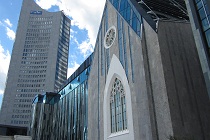 Courtesy: wikimedia
Courtesy: wikimedia
Rajni Bakshi, Senior Gandhi Peace Fellow, was recently at Leipzig in Germany to attend the 4th International Conference on Degrowth. She writes about why Leipzig is reassuring for more than its economic growth
Neelam Deo, Director, Gateway House, talks about the significance of the position taken by NATO member countries at the recent summit in Wales. She says the increasingly acrimonious standoff between the West and Russia over Ukraine, and the stance on the Islamic State has implications for India.
 Courtesy:
Courtesy:
Contrary to some current commentary, NATO has remained relevant after the post-Cold War period, largely due to the perceptions it still engenders. While its symbolic power still endures, a rapidly changing international order could make it obsolete in the near future, as new narratives take its place.
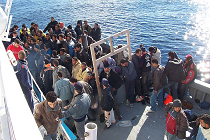 Courtesy: Vito Manzari/Wikimedia Commons
Courtesy: Vito Manzari/Wikimedia Commons
A refugee policy that absolves more capable and resource rich nations of any responsibility towards transnational asylum seekers is archaic and has lived beyond its time. Keeping in mind the EU's receipt of the Nobel Peace Prize for advancing causes of peace, reconciliation, democracy and human rights, it is incumbent upon it to set new standards and reform its refugee policy
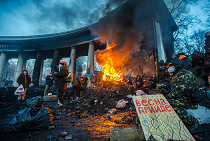 Courtesy: Flickr
Courtesy: Flickr
Eastern Europe has seen tensions rise, increasing violence and a hardening of stands. Only the softening of the stark “either/or” choice currently being demanded by western powers as well as Russia will put an end to the precarious tightrope walking of east European governments and prevent their citizens from becoming victims of increased regional instability
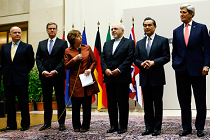 Courtesy: RT.com
Courtesy: RT.com
Talks are on in Vienna between Iran and the P5+1 to reach a settlement on Iran’s nuclear programme. The self-imposed deadline expires on July 20. However, with the U.S. insisting that Iran cut back on operational centrifuges any possibility of a comprehensive solution in the near future seems remote
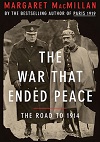 Courtesy: Random House
Courtesy: Random House
In 'The War that ended Peace: The Road to 1914', Margaret Macmillan delves into the decades leading up to 1914, as she explores why Europe abandoned years of peace to plunge into World War I
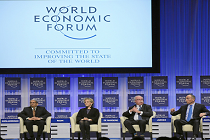 Courtesy: remy steinegger / Flickr
Courtesy: remy steinegger / Flickr
German President Joachim Gauck’s visit to India this week is a reminder of how Germany is addressing inequality, with better wages, benefits for the poorest, and other measures. When the gap between the rich and poor is growing globally, it is time for India’s prime ministerial aspirants to also focus on this issue
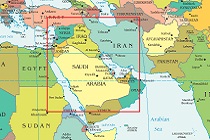 Courtesy: W123/WikimediaCommons
Courtesy: W123/WikimediaCommons
Whether backdoor geopolitics rather than careful negotiations brought about the interim agreement on Iran’s nuclear programme, the next six months will determine its fate. Reactions have ranged from a furious and mistrustful Israel to collective relief by many countries, and a worried India welcoming the agreement
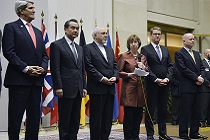 Courtesy: European External Action Service
Courtesy: European External Action Service
On November 24, the P5+1 and Iran reached a consensus on the interim agreement regarding Tehran’s long-disputed nuclear program. How comprehensive is this agreement, and what are its potential upshots for U.S., and West Asia – especially Israel and Saudi Arabia? More importantly, can India play a positive role?